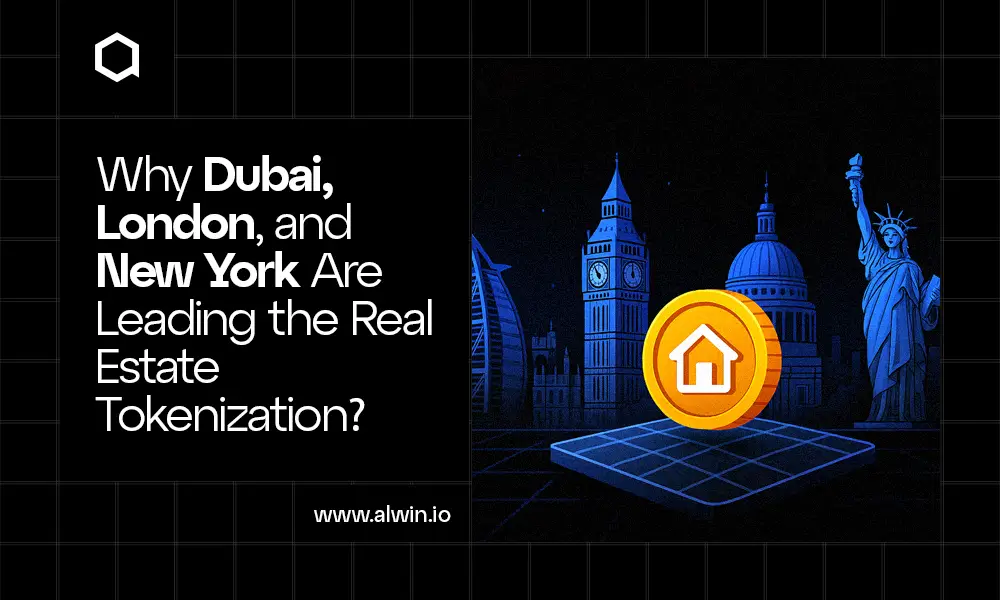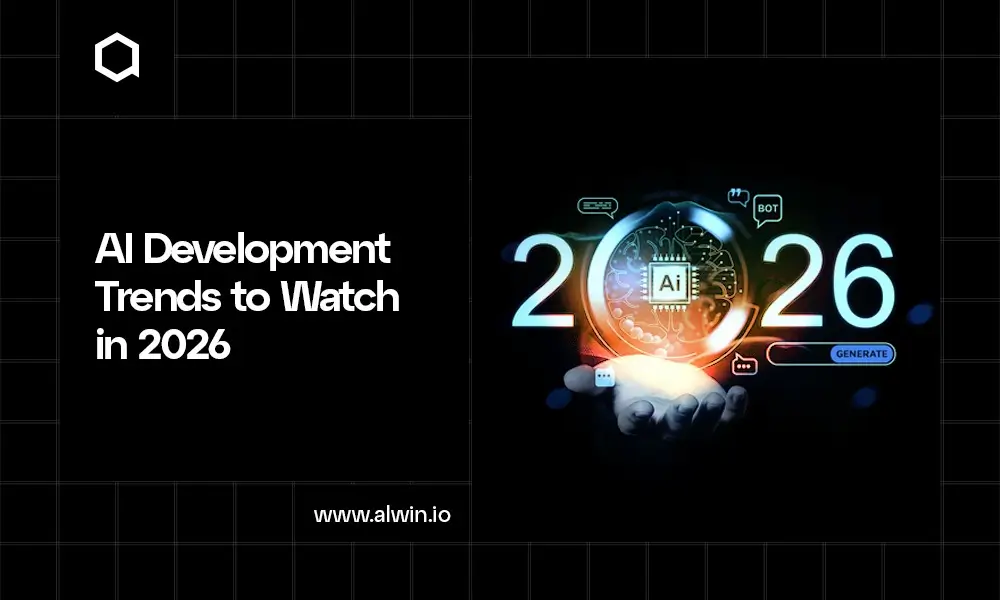Real estate is going digital and fast. As blockchain technology transforms how we invest, own, and trade properties, real estate tokenization has emerged as one of the most exciting trends in the property market. However, among all the global cities exploring this innovation, three stand out: Dubai, London, and New York.
So, what makes these cities the front-runners in this digital property revolution?
It's not just about skyscrapers and luxury homes; it’s about a perfect blend of tech-forward thinking, investor demand, and regulatory readiness.
In this blog, we’ll explore why Dubai, London, and New York are paving the way in real estate tokenization, what makes each market unique, and why the world is watching these cities as the blueprint for the future of real estate.
What is Real Estate Tokenization?
Real estate tokenization is the process of converting ownership of a real-world property into digital tokens on a blockchain. These tokens represent fractional shares of the property, allowing people to buy, sell, or trade small portions of real estate, just like stocks.
Instead of needing hundreds of thousands of dollars to invest in a property, tokenization makes it possible to own a slice of real estate with as little as a few hundred dollars.
Real-Life Example:
Imagine there's a luxury apartment in New York valued at $1 million. Traditionally, only one person or a small group of investors could own it. But with tokenization, the property is digitally divided into 1,000 tokens, each worth $1,000.
Now, instead of one owner, there could be 1,000 different investors each owning a piece of the property through tokens.
These tokens could be traded on a secure blockchain platform. Each token holder might receive a share of the rental income. When the property is sold, the profits are distributed proportionally.
What Makes Dubai, London, and New York Stand Apart for Real Estate Tokenization?
The global real estate market is undergoing a massive transformation with the introduction of blockchain-powered tokenization. While many regions are just beginning to explore this concept, Dubai, London, and New York are already leading the charge. These cities aren't just popular for their high-value properties—they're becoming innovation hubs where real estate and technology intersect to create accessible, liquid, and borderless investment opportunities.
Dubai – Innovation at Government Scale
Dubai stands out for its proactive government strategy in integrating blockchain with real estate. The Dubai Land Department (DLD), one of the most forward-thinking government entities globally, has been actively implementing blockchain for title transfers, smart leasing, and tokenization frameworks.
In 2023, Dubai launched its Real Estate Digital Initiative, aiming to tokenize 7% of all property transactions by 2030, equivalent to approximately AED 60 billion ($16 billion) in market volume.
Major developers like DAMAC and MAG are exploring tokenized offerings, creating access to high-value luxury projects through fractional ownership.
Free zones like DIFC and VARA provide sandbox environments for real estate tokenization startups to test and scale legally and securely.
Dubai is building a blockchain-first infrastructure with clear regulatory direction, tax efficiency, and a strong international investor base, making it ideal for property-backed digital asset projects.
London – Tradition Meets Tech
As one of the world's top financial capitals, London brings institutional trust and robust infrastructure to the tokenization space.
Real estate tokenization startups like Bricktrade and Smartlands have made it possible for global investors to participate in the UK property market with investments as low as £500.
The UK’s Financial Conduct Authority (FCA) is actively exploring digital asset frameworks, giving companies more clarity and confidence to operate legally.
London’s large population of real estate professionals, asset managers, and tech talent fuels innovation while maintaining financial rigor.
With its rich real estate history and open regulatory dialogue, London represents a mature, stable environment for building long-term tokenized asset solutions.
New York – Institutional Depth Meets Digital Growth
New York, with its iconic skyline and massive real estate market, has all the ingredients for tokenization at scale. It is home to both legacy property developers and fintech disruptors, a rare and powerful combination.
Platforms like Republic and RealT have used tokenization to fractionalize properties, allowing users to earn rental income and capital appreciation through tokens, legally recognized in U.S. jurisdictions like Delaware.
The U.S. Securities and Exchange Commission (SEC) is actively engaging in the digital securities space, which supports the growing trend of compliant real estate token offerings.
Institutional players, such as REITs and private equity firms, are exploring tokenized models for greater liquidity and secondary trading.
New York’s influence lies not only in its market size but in its ability to bridge traditional real estate investing with compliant blockchain innovation, making it a blueprint for large-scale adoption.

What Sets Them Apart?
These cities aren’t just following blockchain trends—they’re setting them. What makes them different is their ability to combine property market strength with real-world application of tokenization, supported by legal clarity and investor appetite.
- Dubai is building a real estate-token economy from the ground up, backed by government vision.
- London is extending its financial legacy into the digital future with trusted, fractional models.
- New York is merging Wall Street capital with blockchain innovation, showing that institutional and retail investors can both benefit from tokenization.
Ending Note
Dubai, London, and New York aren’t just participating in real estate tokenization—they’re defining what’s possible. Their efforts are not only digitizing property ownership but also democratizing access to one of the world’s oldest and most valuable asset classes.
Dubai, London, and New York aren’t just global real estate hotspots—they’re proving grounds for the future of how we buy, sell, and invest in property. Each city brings something unique to the table: Dubai’s bold innovation, London’s trusted financial legacy, and New York’s powerful blend of tech and capital.
What unites them is their readiness to embrace blockchain, build investor confidence, and create real-world use cases for tokenized assets. These cities aren’t just experimenting—they’re scaling, and their models are becoming the blueprint for tokenized real estate around the world.
So, if you're exploring real estate tokenization for business, look to where the momentum is real and the infrastructure is already in motion. And if you’re ready to be part of the shift, Dubai, London, and New York aren’t just leading—they’re inviting you to join the revolution.



